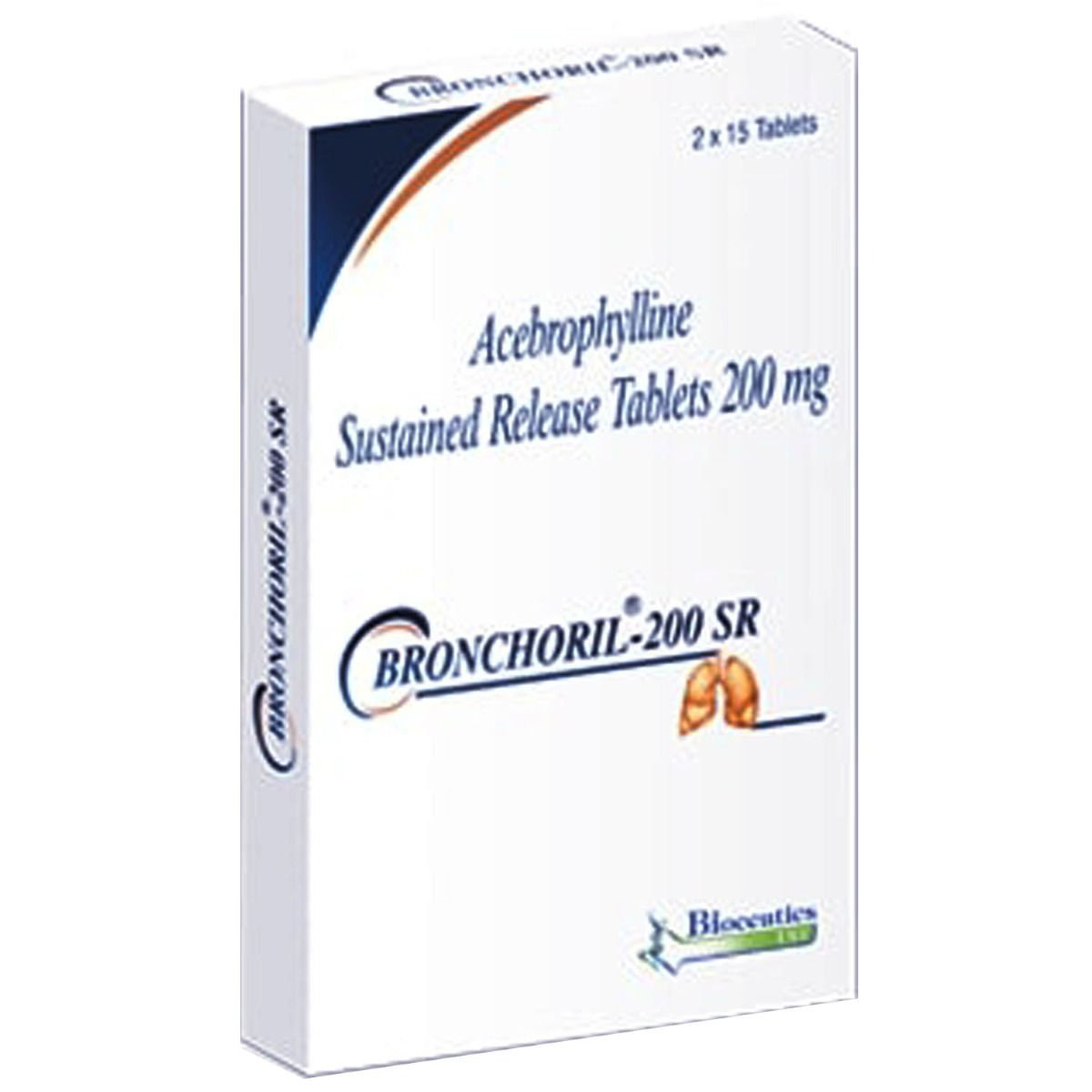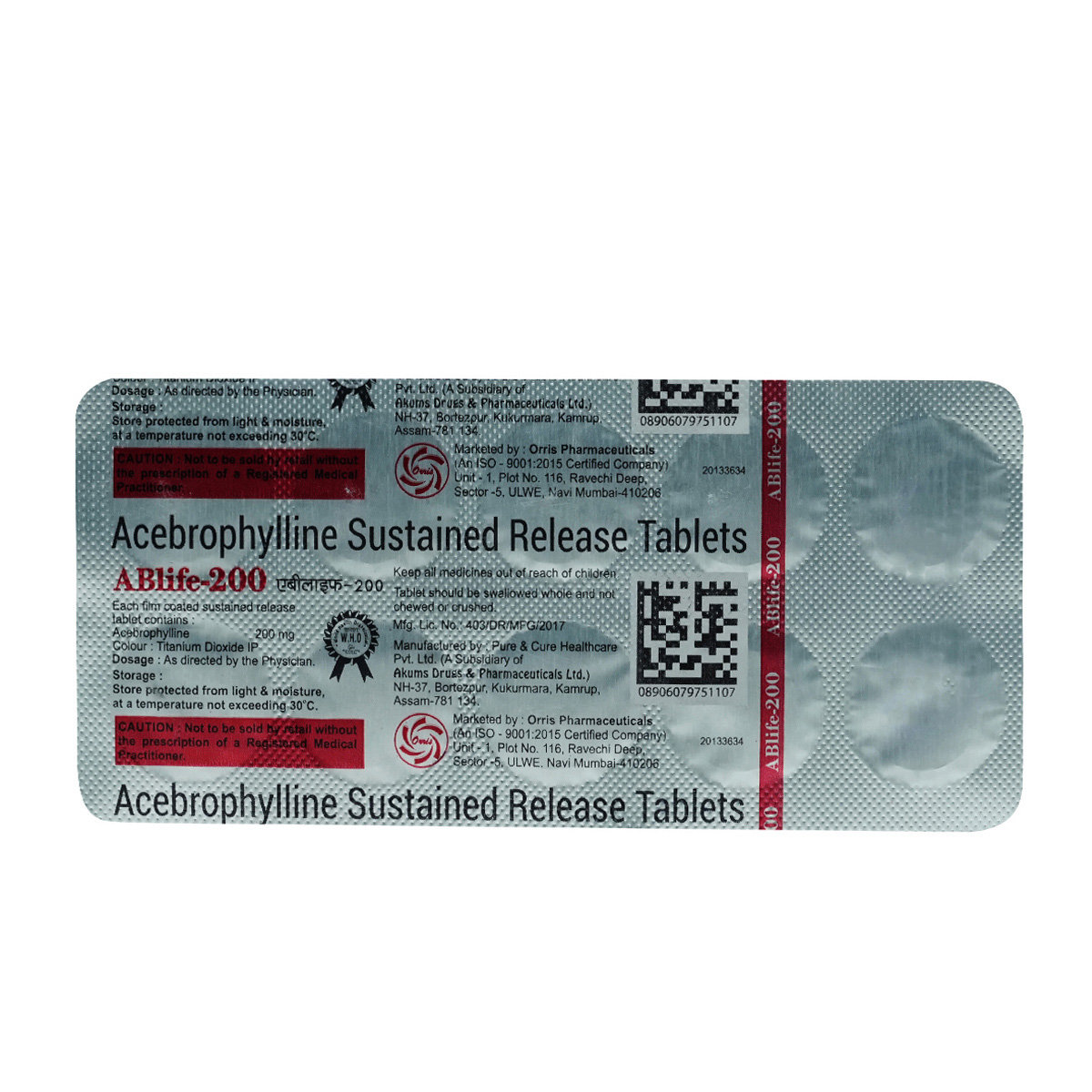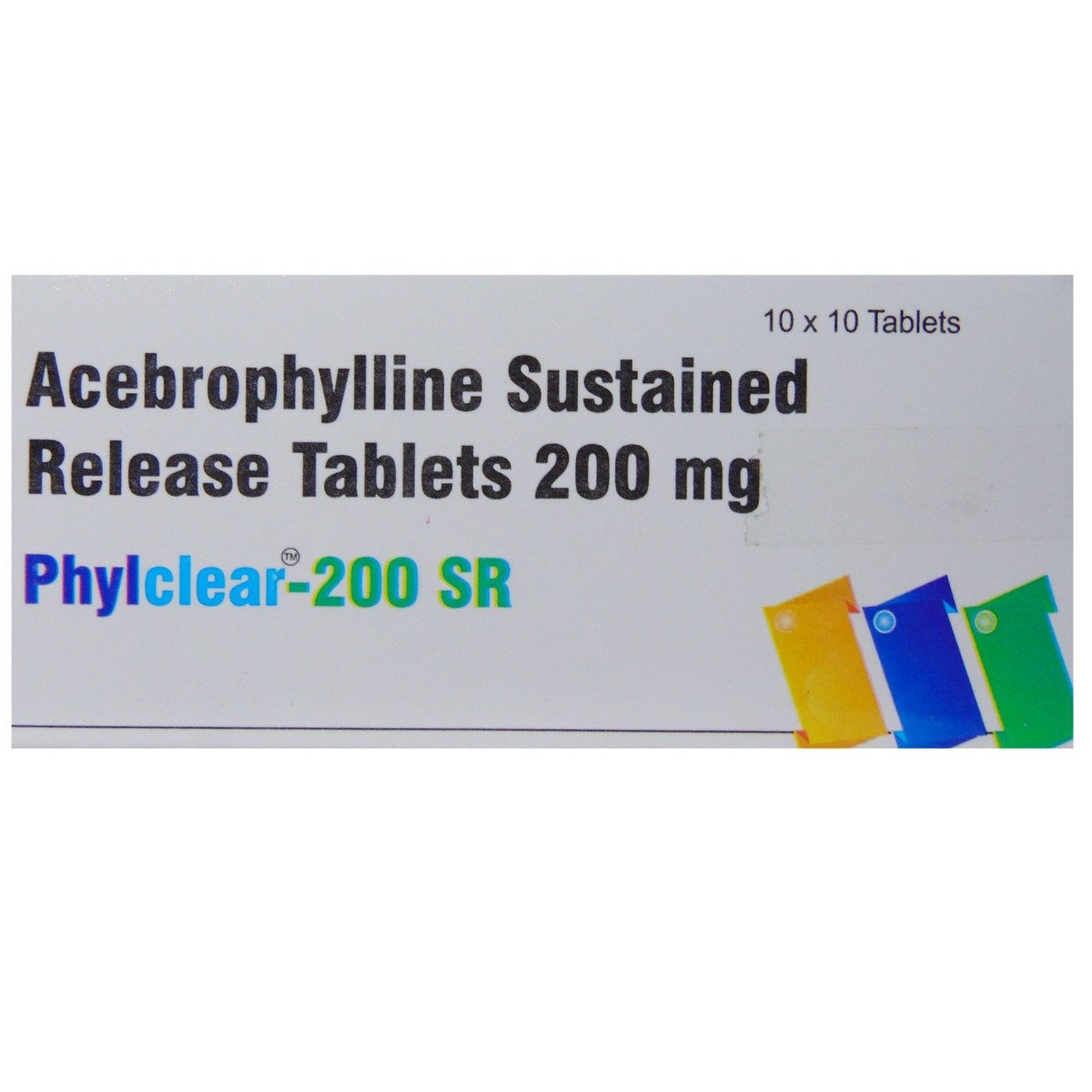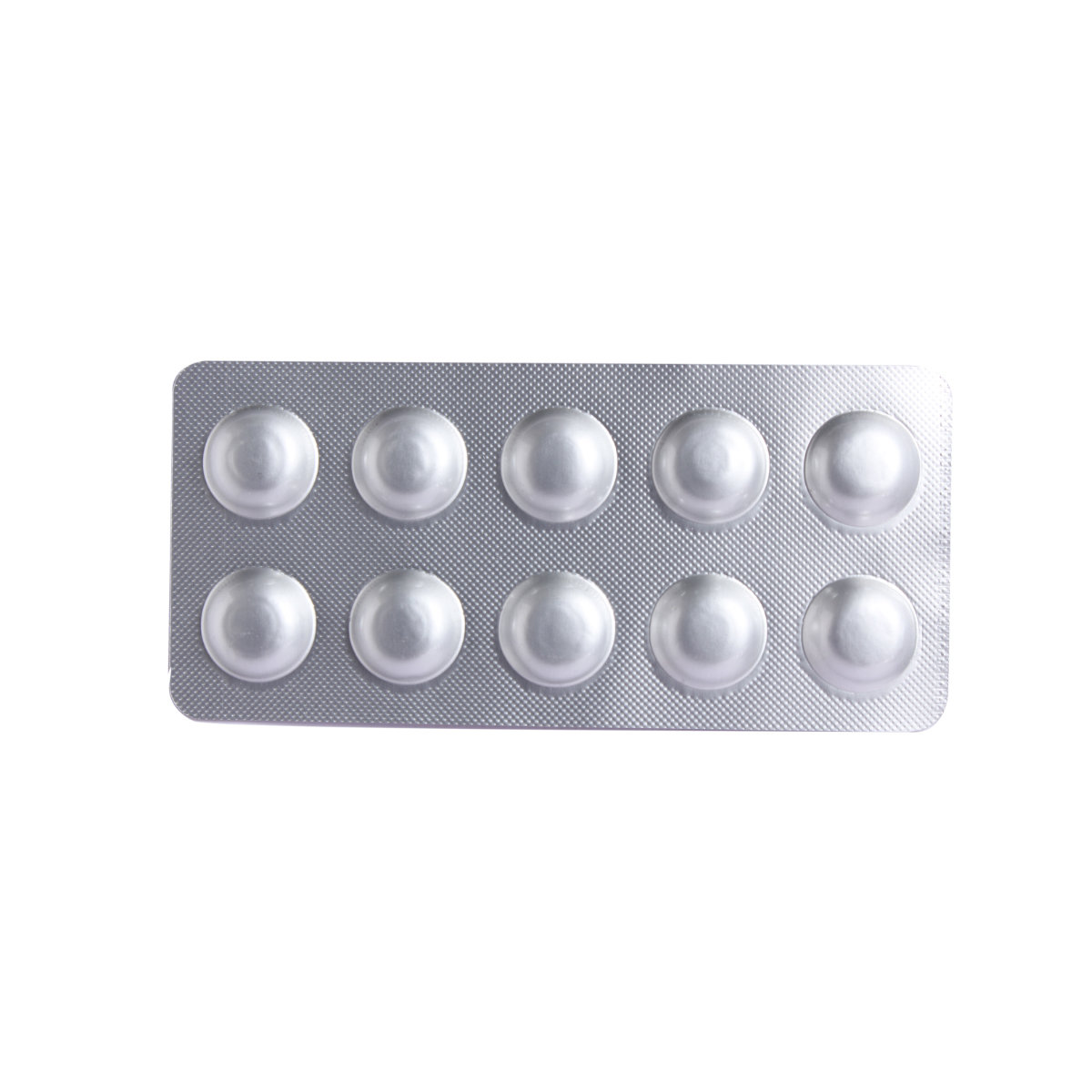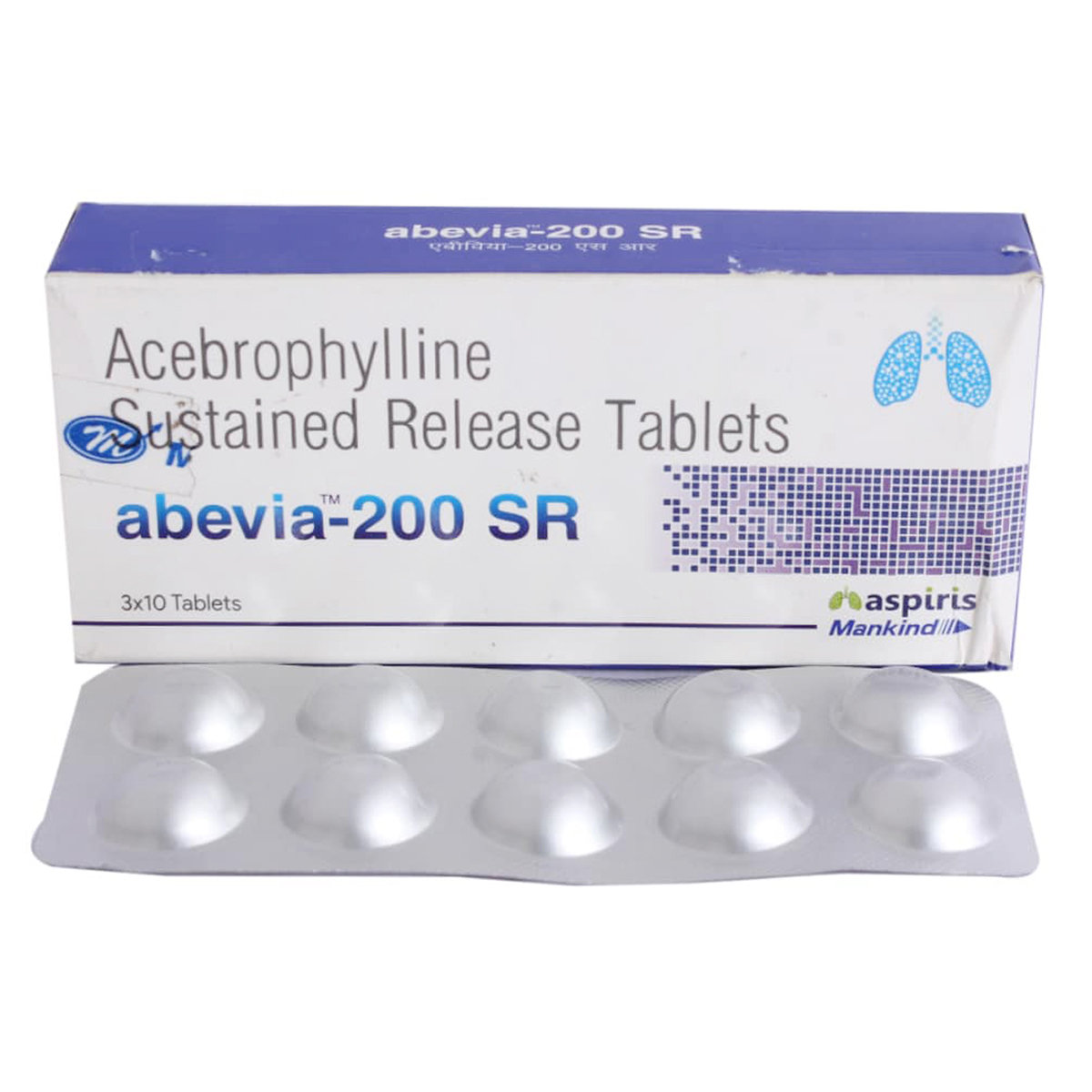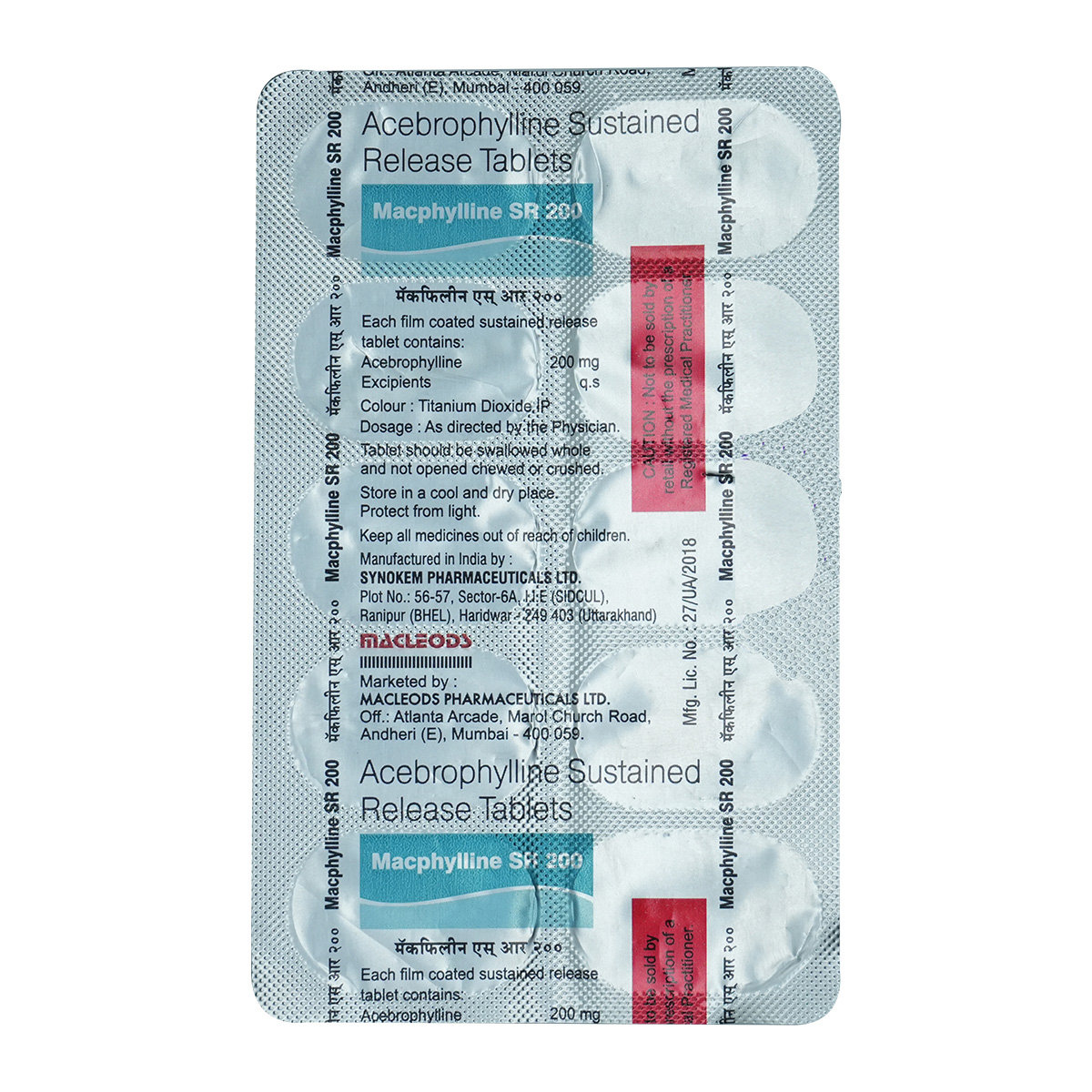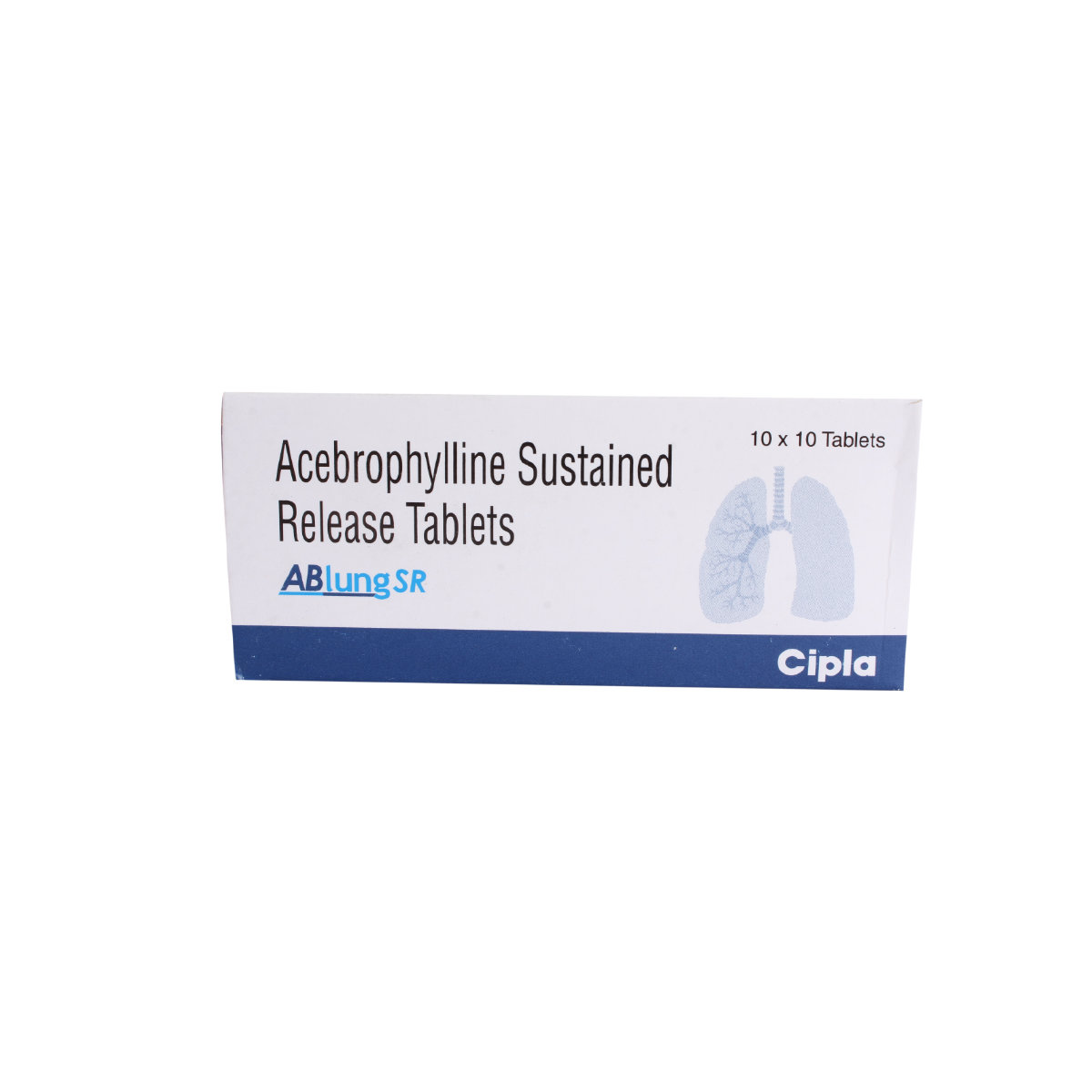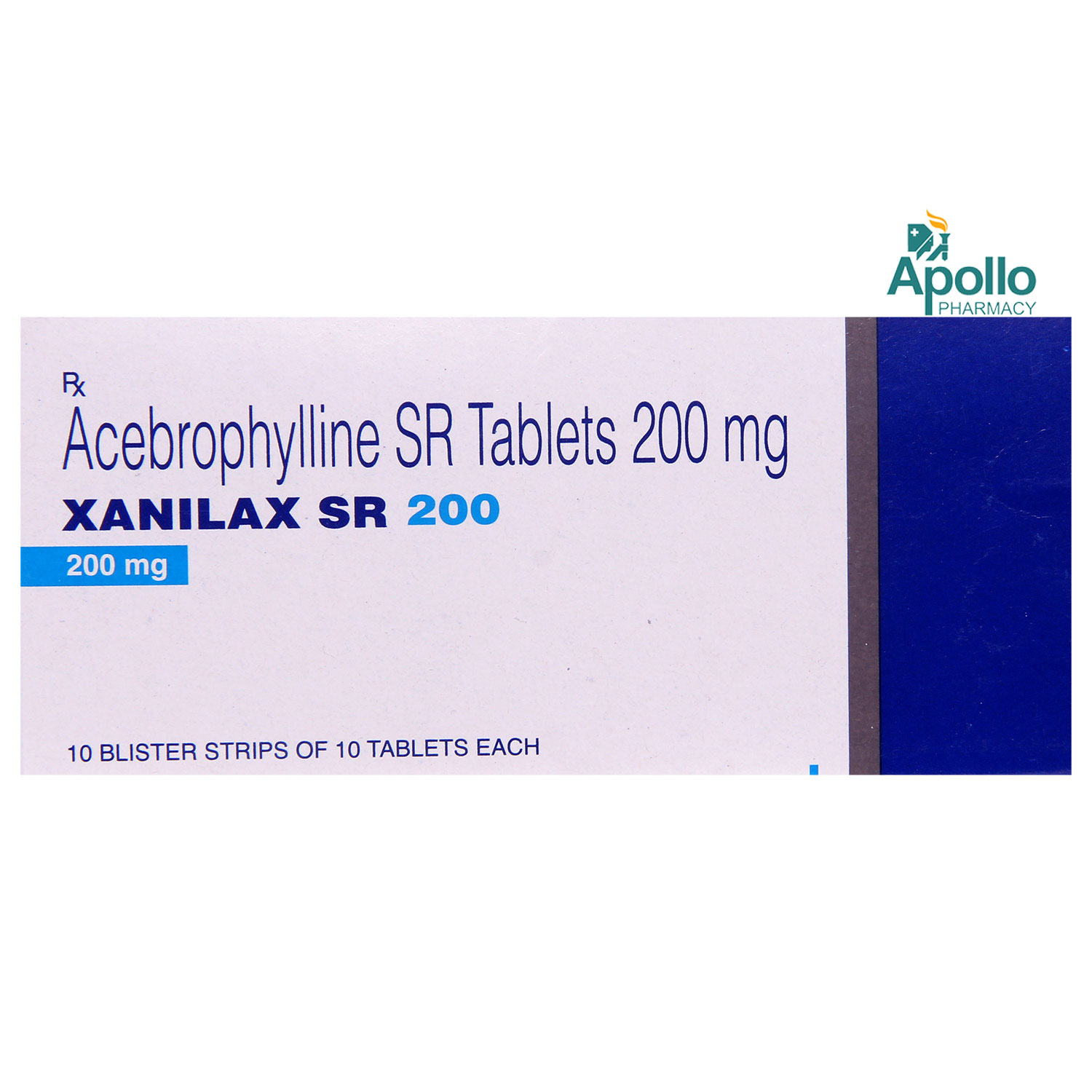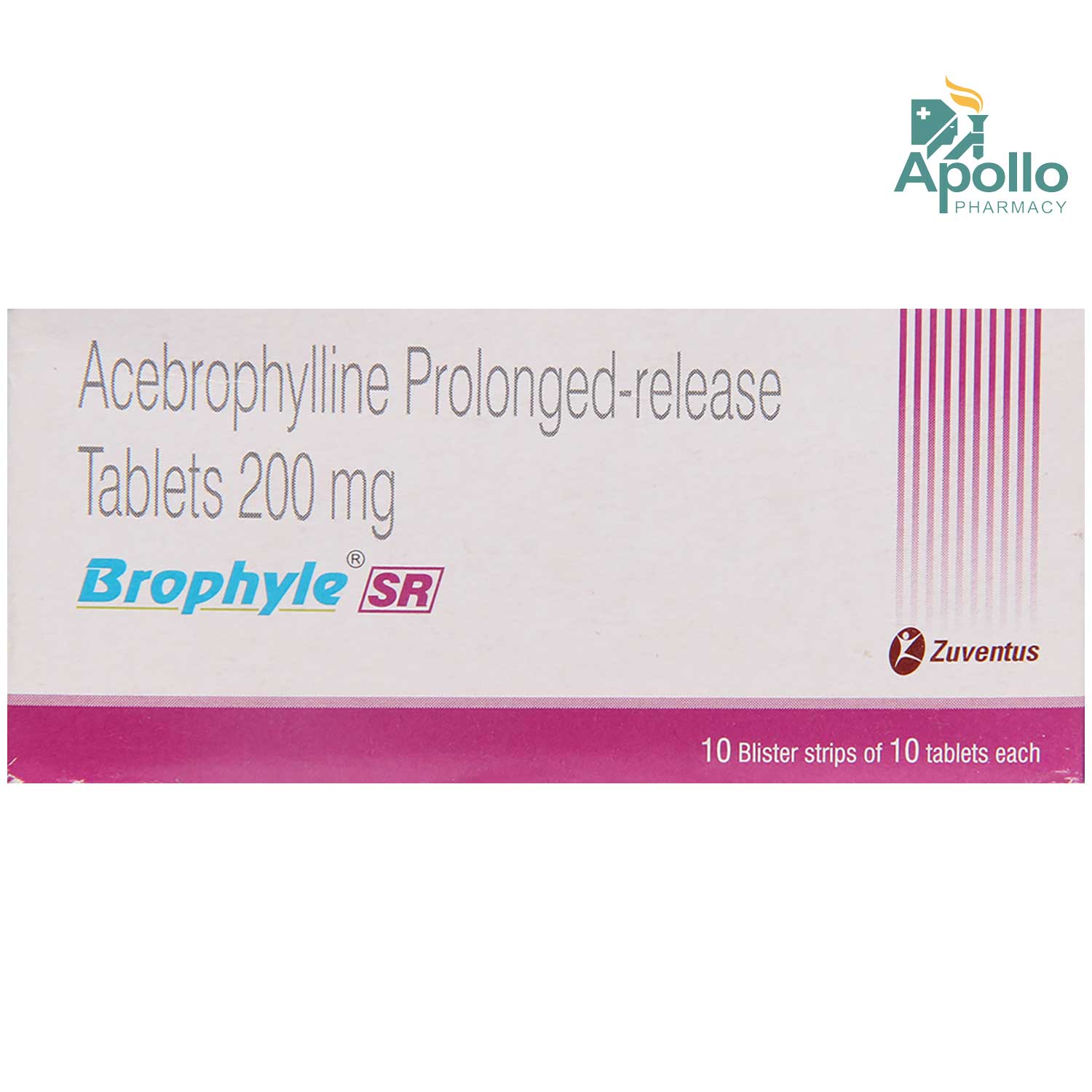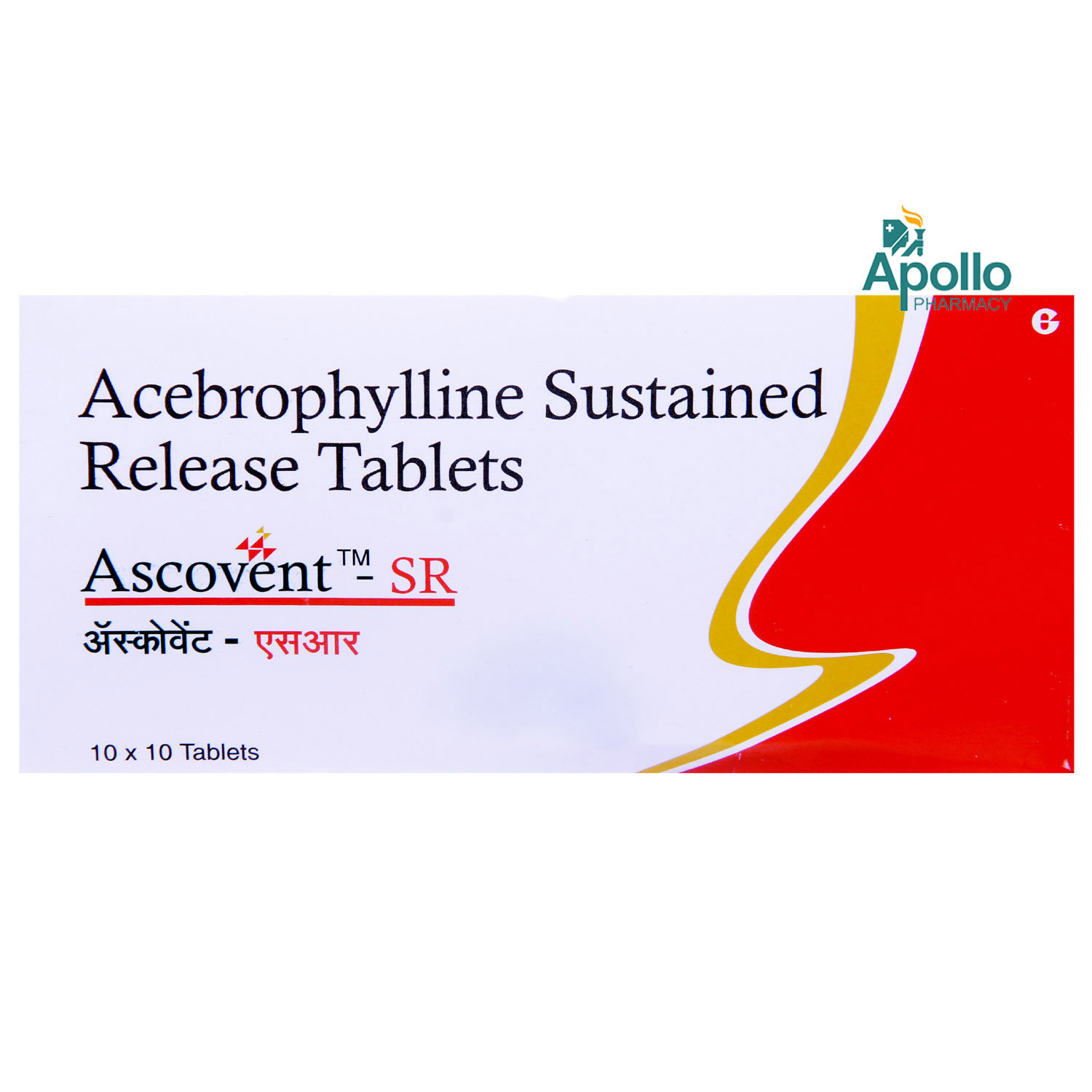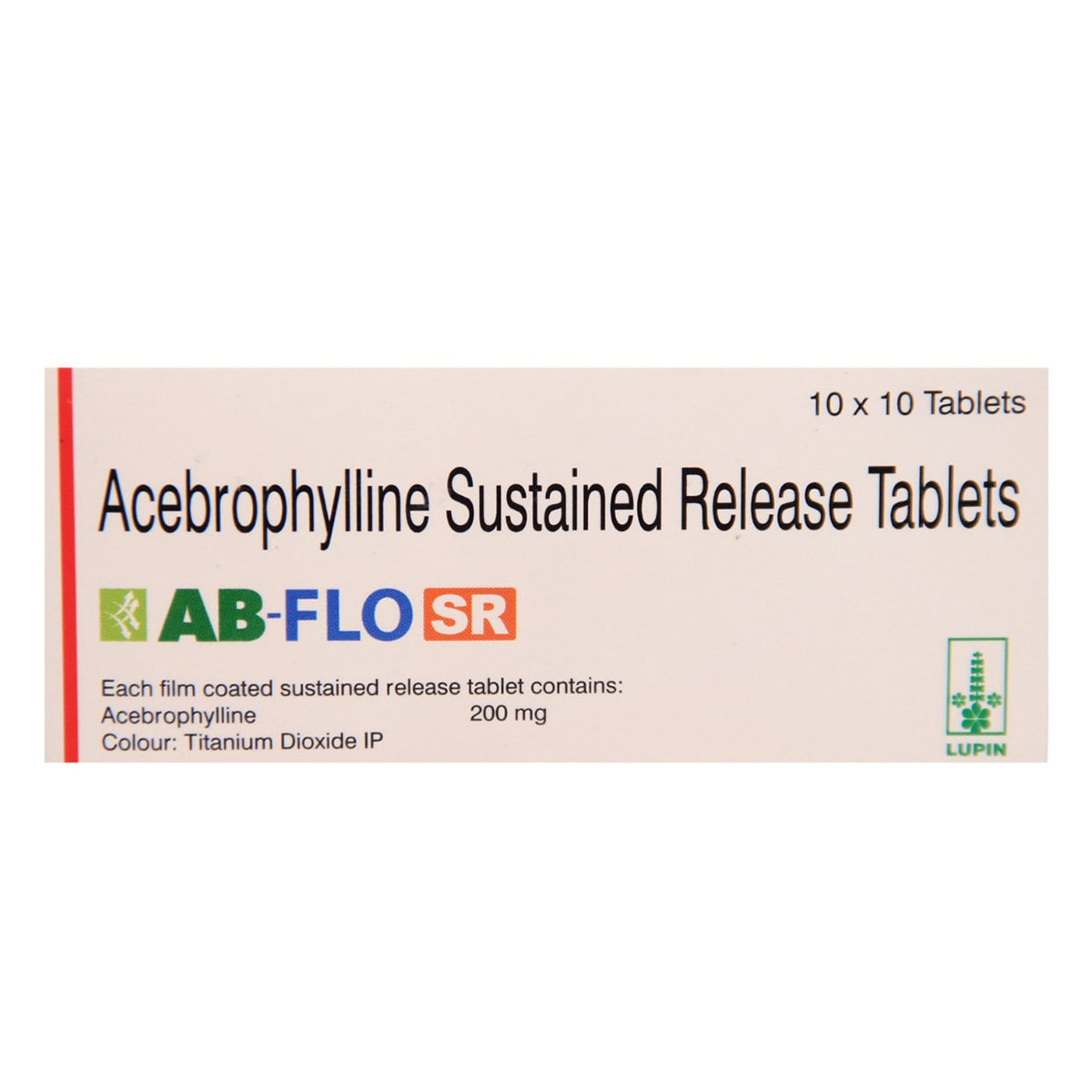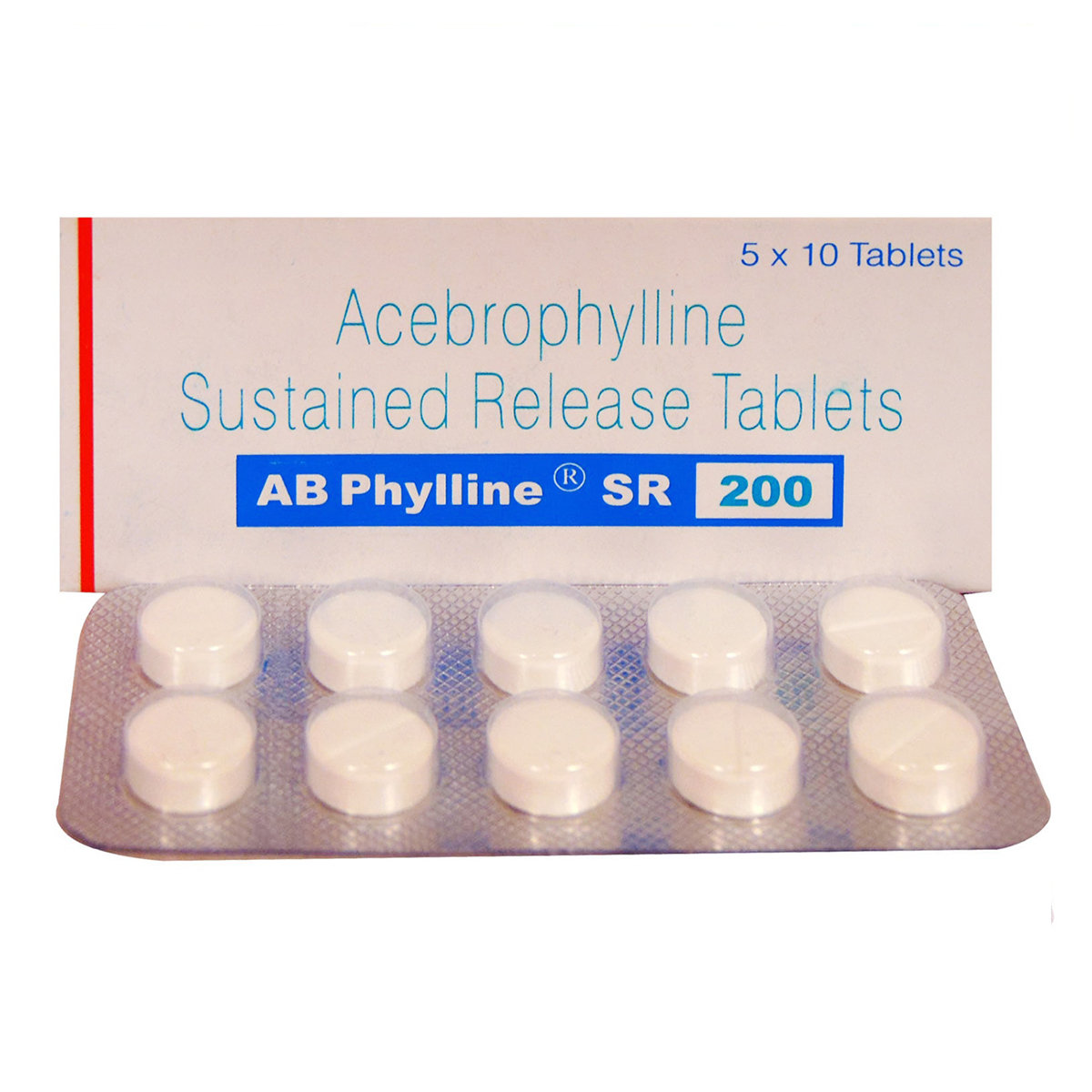Bronchoril-200 SR Tablet 15's
MRP ₹304.5
(Inclusive of all Taxes)
₹45.7 Cashback (15%)
Provide Delivery Location
Online payment accepted
 Prescription drug
Prescription drugWhats That
Composition :
Manufacturer/Marketer :
Consume Type :
Expires on or after :
Return Policy :
About Bronchoril-200 SR Tablet
Bronchoril-200 SR Tablet belongs to the class of drugs called bronchodilators primarily used to prevent and treat symptoms of asthma and chronic obstructive pulmonary disease (COPD). Asthma is a chronic (long-term) respiratory condition in which airways narrow, swell, and produce extra mucus, leading to difficulty in breathing. COPD is a group of lung diseases with emphysema (shortness of breath) and chronic bronchitis (inflammation of the lining of bronchial tubes).
Bronchoril-200 SR Tablet contains Acebrophylline that works by relaxing muscles and widening the airways of the lungs. Additionally, Bronchoril-200 SR Tablet also acts as mucolytic (cough/sputum thinner) agent and helps in thinning and loosening phlegm (mucus) in lungs, windpipe and nose. Thereby, it helps to cough out easily and makes breathing easier by opening airways.
Take Bronchoril-200 SR Tablet as prescribed. Your doctor will recommend how often you take Bronchoril-200 SR Tablet based on your medical condition. Some people may experience diarrhoea, nausea, vomiting, dizziness, heartburn, stomach discomfort, skin rash or drowsiness. Most of these side effects of Bronchoril-200 SR Tablet do not require medical attention and gradually resolve over time. However, if the side effects persist or worsen, please consult your doctor.
If you are allergic to Bronchoril-200 SR Tablet or any other medicines, please tell your doctor. If your breathing worsens or you often wake up at night with asthma, experience chest tightness in the morning or lasts longer than usual, please consult a doctor immediately as these might be signs indicating that your asthma is not controlled properly and requires an alternate or additional treatment. Regular monitoring of potassium levels is recommended while taking Bronchoril-200 SR Tablet as it may cause low potassium levels in the blood. If you are pregnant or breastfeeding, it is advised to inform your doctor before using Bronchoril-200 SR Tablet . Do not take Bronchoril-200 SR Tablet if you have heart rhythm disorder that causes fast heartbeats. Avoid taking Bronchoril-200 SR Tablet if you have low blood pressure, irregular heartbeats, hemodynamic instability (unstable blood pressure), had a heart attack, kidney or liver diseases. If you have hyperthyroidism (overactive thyroid), irregular heartbeats, viral infections, heart failure, high blood pressure, fits, gastric or duodenal ulcers, heart diseases, kidney or liver insufficiency, inform your doctor before taking Bronchoril-200 SR Tablet .
Uses of Bronchoril-200 SR Tablet
Directions for Use
Key Benefits
Bronchoril-200 SR Tablet is a bronchodilator and mucolytic (mucus thinner) agent that is used to treat symptoms of asthma and chronic obstructive pulmonary diseases (COPD). Bronchoril-200 SR Tablet works by relaxing muscles and widening the airways of the lungs. Additionally, Bronchoril-200 SR Tablet helps in thinning and loosening phlegm (mucus) in lungs, windpipe and nose. Thereby, it helps to cough out easily and makes breathing easier by opening airways. Bronchoril-200 SR Tablet helps to prevent an asthma attack and exercise freely if it is taken before exercise.
Storage
- Inform your doctor about dizziness symptoms. They may adjust your medication regimen or prescribe additional medications to manage symptoms.
- Follow your doctor's instructions for taking medication, and take it at the same time every day to minimize dizziness.
- When standing up, do so slowly and carefully to avoid sudden dizziness.
- Avoid making sudden movements, such as turning or bending quickly, which can exacerbate dizziness.
- Drink plenty of water throughout the day to stay hydrated and help alleviate dizziness symptoms.
- If you're feeling dizzy, sit or lie down and rest until the dizziness passes.
- Track when dizziness occurs and any factors that may trigger it, and share this information with your doctor to help manage symptoms.
- Inform your doctor immediately if you experience a fever after starting a new medication.
- Your doctor may adjust your medication regimen or dosage as needed to minimize fever symptoms.
- Monitor your body temperature to monitor fever progression.
- Drink plenty of fluids, such as water or electrolyte-rich beverages, to help your body regulate temperature.
- Get plenty of rest and engage in relaxation techniques, such as deep breathing or meditation, to help manage fever symptoms.
- Under the guidance of your doctor, consider taking medication, such as acetaminophen or ibuprofen, to help reduce fever.
- If your fever is extremely high (over 103°F), or if you experience severe symptoms such as confusion, seizures, or difficulty breathing, seek immediate medical attention.
- Hydrate your body: Drink enough water to prevent dehydration and headaches.
- Calm Your Mind: Deep breathing and meditation can help you relax and relieve stress.
- Rest and Recharge: Sleep for 7-8 hours to reduce headache triggers.
- Take rest: lie down in a quiet, dark environment.
- Cold or warm compresses can help reduce tension.
- Stay Upright: Maintain good posture to keep symptoms from getting worse.
- To treat headaches naturally, try acupuncture or massage therapy.
- Over-the-counter pain relievers include acetaminophen and ibuprofen.
- Prescription Assistance: Speak with your doctor about more substantial drug alternatives.
- Severe Headaches: Seek emergency medical assistance for sudden, severe headaches.
- Frequent Headaches: If you get reoccurring headaches, consult your doctor.
- Headaches with Symptoms: Seek medical attention if your headaches include fever, disorientation, or weakness.
Drug Warnings
If you are allergic to Bronchoril-200 SR Tablet or any other medicines, please tell your doctor. If your breathing worsens or you often wake up at night with asthma, experience chest tightness in the morning or lasts longer than usual, please consult a doctor immediately as these might be signs indicating that your asthma is not controlled properly and requires an alternate or additional treatment. Regular monitoring of potassium levels is recommended while taking Bronchoril-200 SR Tablet as it may cause low potassium levels in the blood. If you are pregnant or breastfeeding, it is advised to inform your doctor before using Bronchoril-200 SR Tablet . Do not take Bronchoril-200 SR Tablet if you have heart rhythm disorder that causes fast heartbeats. Avoid taking Bronchoril-200 SR Tablet if you have low blood pressure, irregular heartbeats, hemodynamic instability (unstable blood pressure), had a heart attack, kidney or liver diseases. If you have hyperthyroidism (overactive thyroid), irregular heartbeats, viral infections, heart failure, high blood pressure, fits, gastric or duodenal ulcers, heart diseases, kidney or liver insufficiency, inform your doctor before taking Bronchoril-200 SR Tablet .
Drug-Drug Interactions
Drug-Drug Interactions
Login/Sign Up
Drug-Food Interactions
Drug-Food Interactions
Login/Sign Up
Diet & Lifestyle Advise
- Eat foods rich in potassium such as tomatoes, bananas, asparagus, oranges, potatoes, avocados, dark leafy greens and beetroots as potassium is important for lung function and a potassium deficiency may cause breathing problems.
- Drink plenty of fluids every day to thin mucus which makes it easier to cough out.
- Avoid foods such as cabbage, beans, garlic, onions, shrimp, pickled food, dried fruits, fried foods, carbonated drinks, wine, bottled lemon and lime juice as it may worsen asthma symptoms.
- Exercise regularly to strengthen your breathing muscles and boost your immune system. Learning breathing exercises will help you move more air in and out of your lungs.
- Do meditation, deep breathing, regular exercise and try progressive muscle relaxation techniques to get relief from stress and reduce the risk of an asthma attack.
- Quit smoking as it may reduce the effectiveness of the Bronchoril-200 SR Tablet and irritate the lungs worsening breathing problem.
Side Effects of Bronchoril-200 SR Tablet
- Diarrhoea
- Nausea
- Vomiting
- Dizziness
- Heartburn
- Stomach discomfort
- Skin rash
- Drowsiness
Habit Forming
Therapeutic Class
All Substitutes & Brand Comparisons
RX
Ablife-200 Tablet 10's
Orris Pharmaceuticals
₹139
(₹12.51 per unit)
31% CHEAPERRX
Phylclear 200mg SR Tablet 10's
D N Therapeutics Pvt Ltd
₹158
(₹14.22 per unit)
22% CHEAPERRX
Abiways-200 SR Tablet 10's
Mankind Pharma Pvt Ltd
₹195.5
(₹17.6 per unit)
3% CHEAPER
Author Details
We provide you with authentic, trustworthy and relevant information
Drug-Diseases Interactions
Drug-Diseases Interactions
Login/Sign Up
FAQs
Drug-Drug Interactions Checker List
- FUROSEMIDE
- ALLOPURINOL
- CIMETIDINE
- CIPROFLOXACIN
- ERYTHROMYCIN
- AMOXICILLIN
- DILTIAZEM
- VERAPAMIL
- ISOPRENALINE
- DOXYCYCLINE
- PREDNISONE
- ETHINYLESTRADIOL
- THIABENDAZOLE
Disease/Condition Glossary
Asthma: It is a chronic (long-term) respiratory condition in which airways narrow, swell, and produce extra mucus, leading to difficulty in breathing. The symptoms of asthma include wheezing (whistling sound while breathing), shortness of breath, chest tightness and cough, especially at night. The symptoms of mild persistent asthma may occur more than 2 times in a week and up to 4 nights in a month whereas, in case of severe persistent asthma, the symptoms occur several times every day and most nights. The treatment for asthma includes medication, breathing exercises and self-care.
Chronic obstructive pulmonary disease (COPD): It is a group of lung diseases with emphysema (shortness of breath) and chronic bronchitis (inflammation of the lining of bronchial tubes). The major cause of COPD is smoking tobacco. Also, long-term exposure to fumes and chemicals may lead to COPD. The symptoms include chronic cough, shortness of breath or wheezing (whistle sound while breathing).

Have a query?
Alcohol
Safe if prescribed
Avoid consumption of alcohol with Bronchoril-200 SR Tablet as it may increase drowsiness. Please consult a doctor before consuming alcohol with Bronchoril-200 SR Tablet .
Pregnancy
Consult your doctor
Bronchoril-200 SR Tablet is not recommended for pregnant women. Please consult a doctor before using Bronchoril-200 SR Tablet if you are pregnant.
Breast Feeding
Consult your doctor
It is unknown whether Bronchoril-200 SR Tablet is excreted in human milk. Please consult a doctor before taking Bronchoril-200 SR Tablet if you are breastfeeding.
Driving
Safe if prescribed
Bronchoril-200 SR Tablet usually does not affect your ability to drive or operate machinery.
Liver
Consult your doctor
Take Bronchoril-200 SR Tablet with caution, especially if you have a history of Liver diseases/conditions. The dose may be adjusted by your doctor as required.
Kidney
Consult your doctor
Take Bronchoril-200 SR Tablet with caution, especially if you have a history of Kidney diseases/conditions. The dose may be adjusted by your doctor as required.
Children
Safe if prescribed
Bronchoril-200 SR Tablet should be used with caution in children in doses as prescribed by a doctor.
Recommended for a 30-day course: 2 Strips

